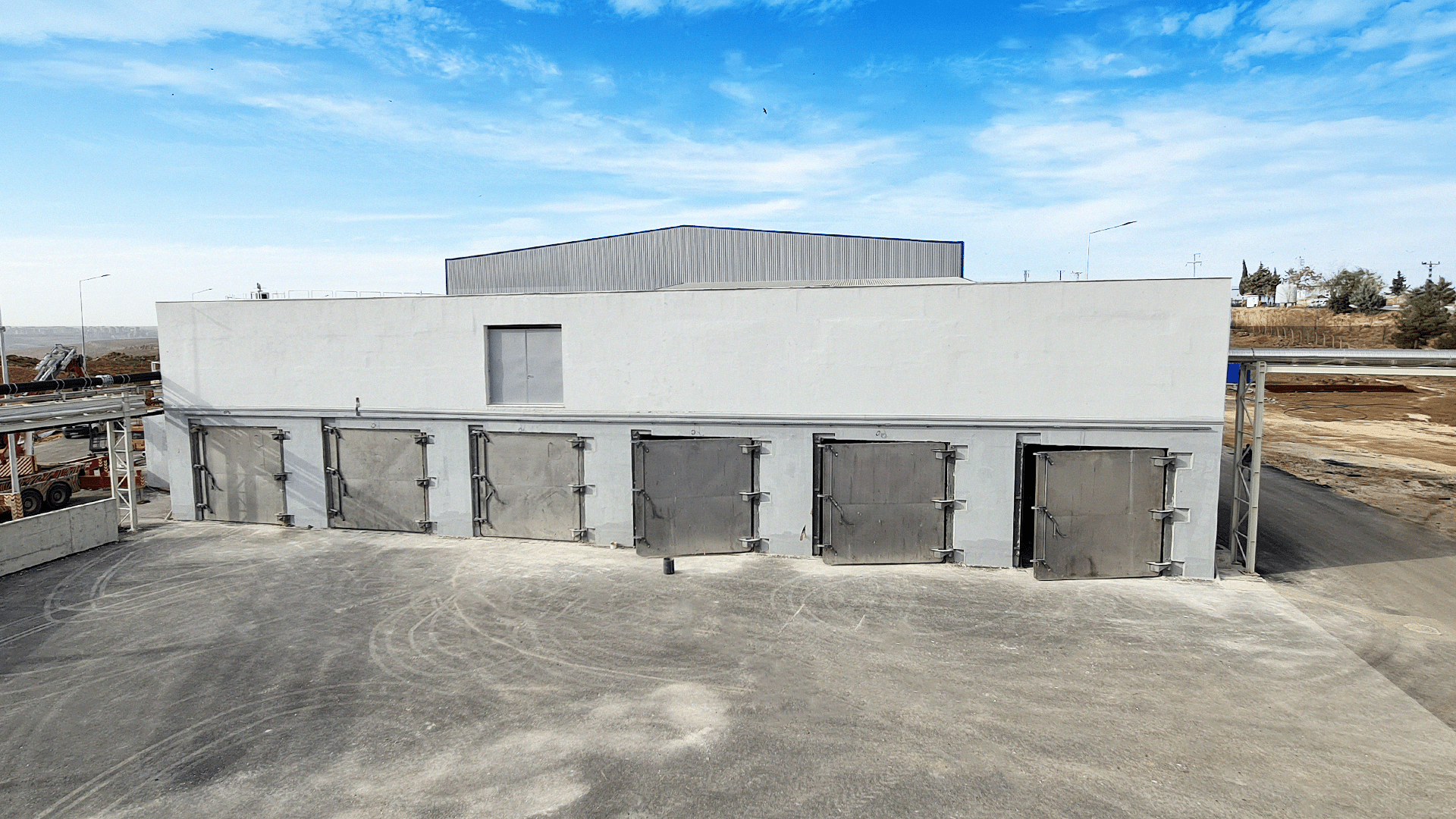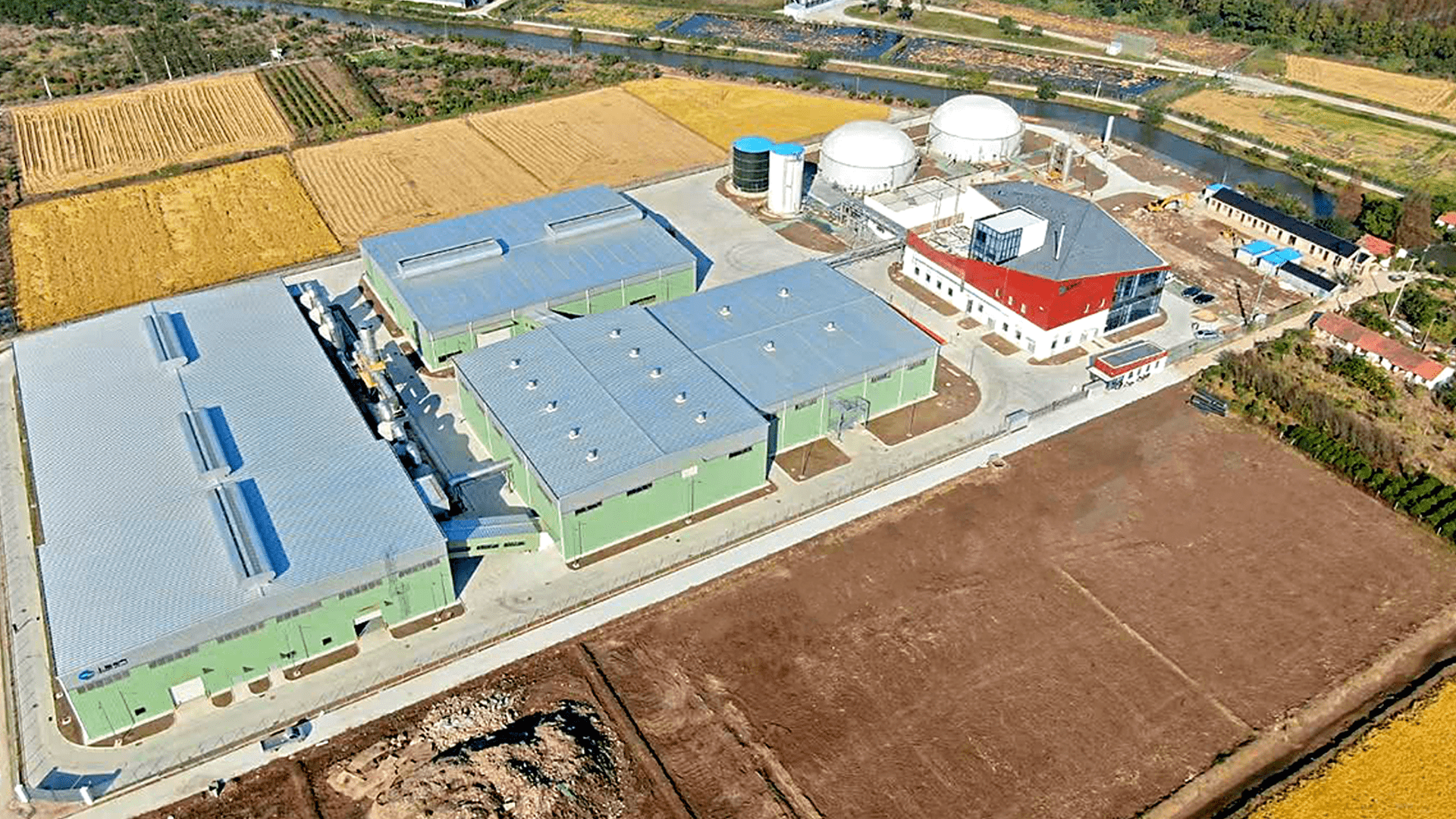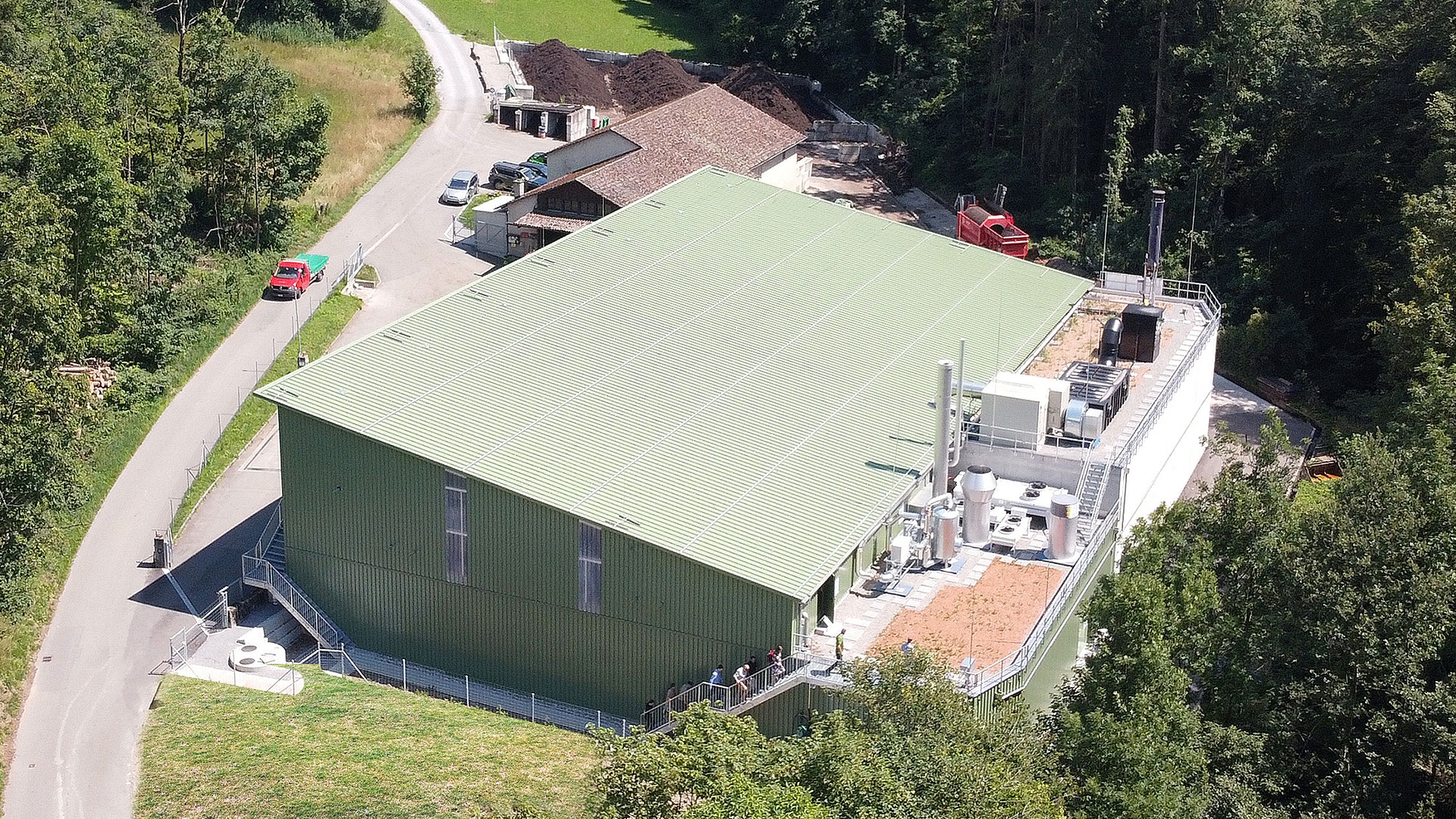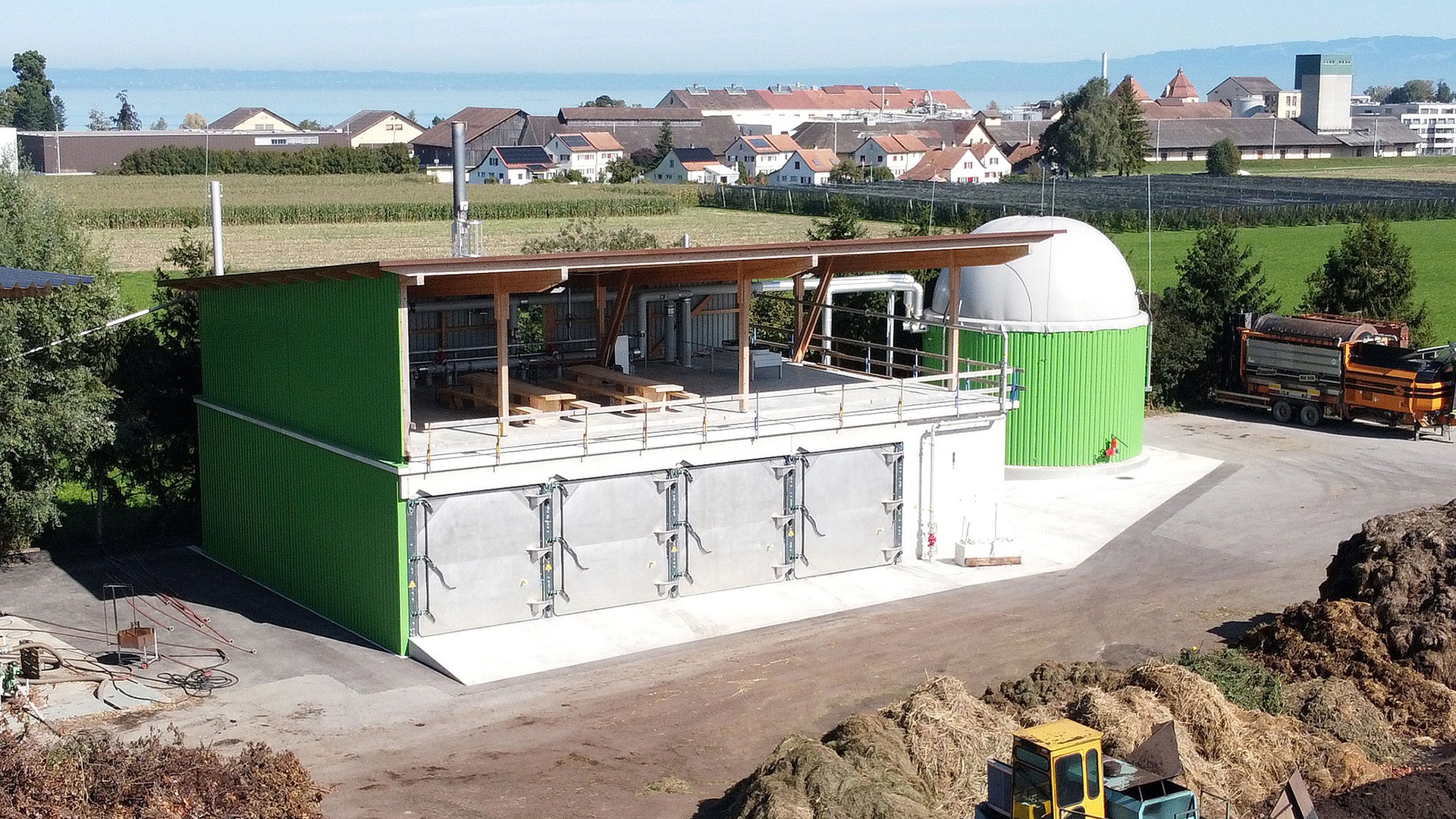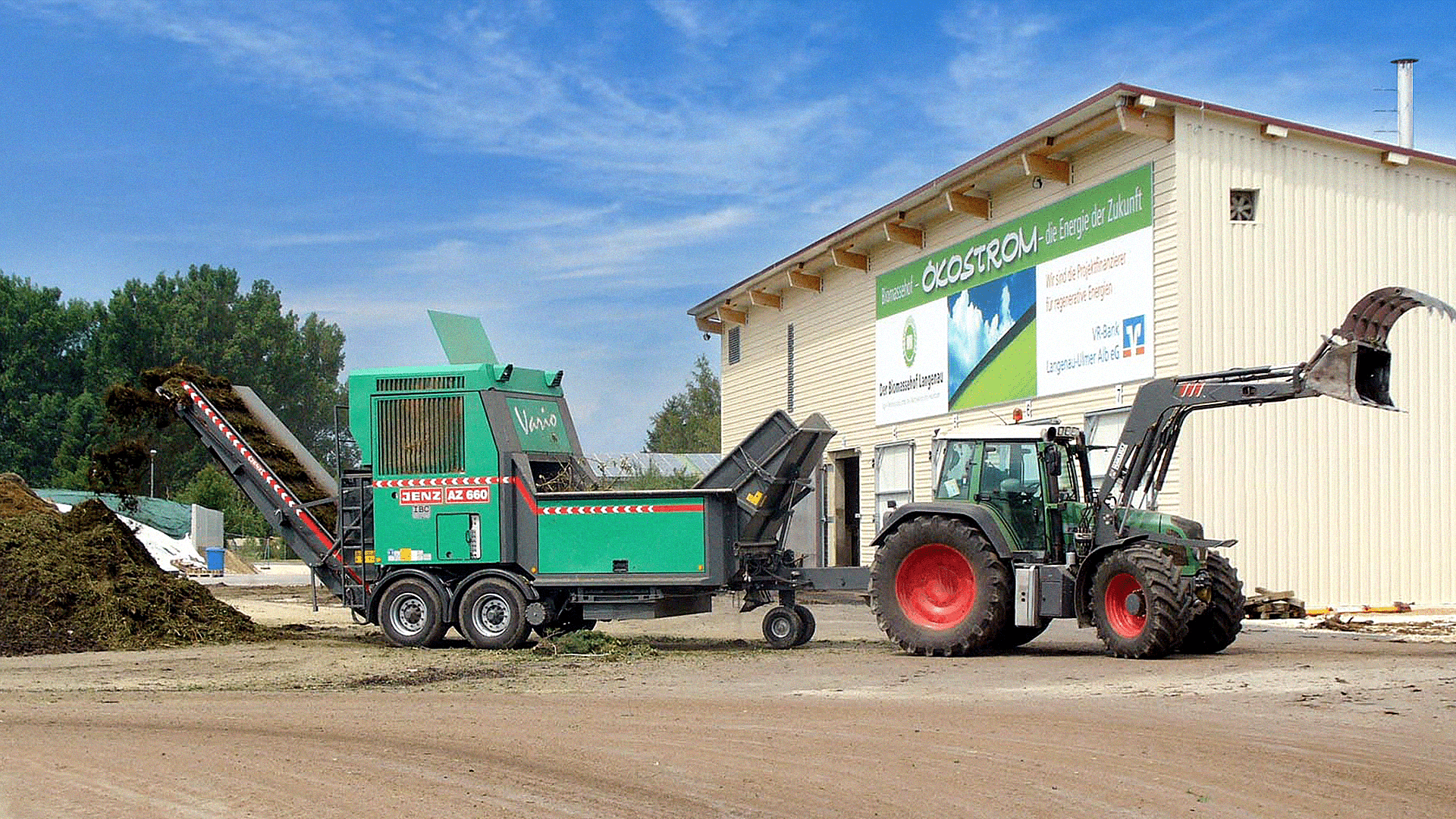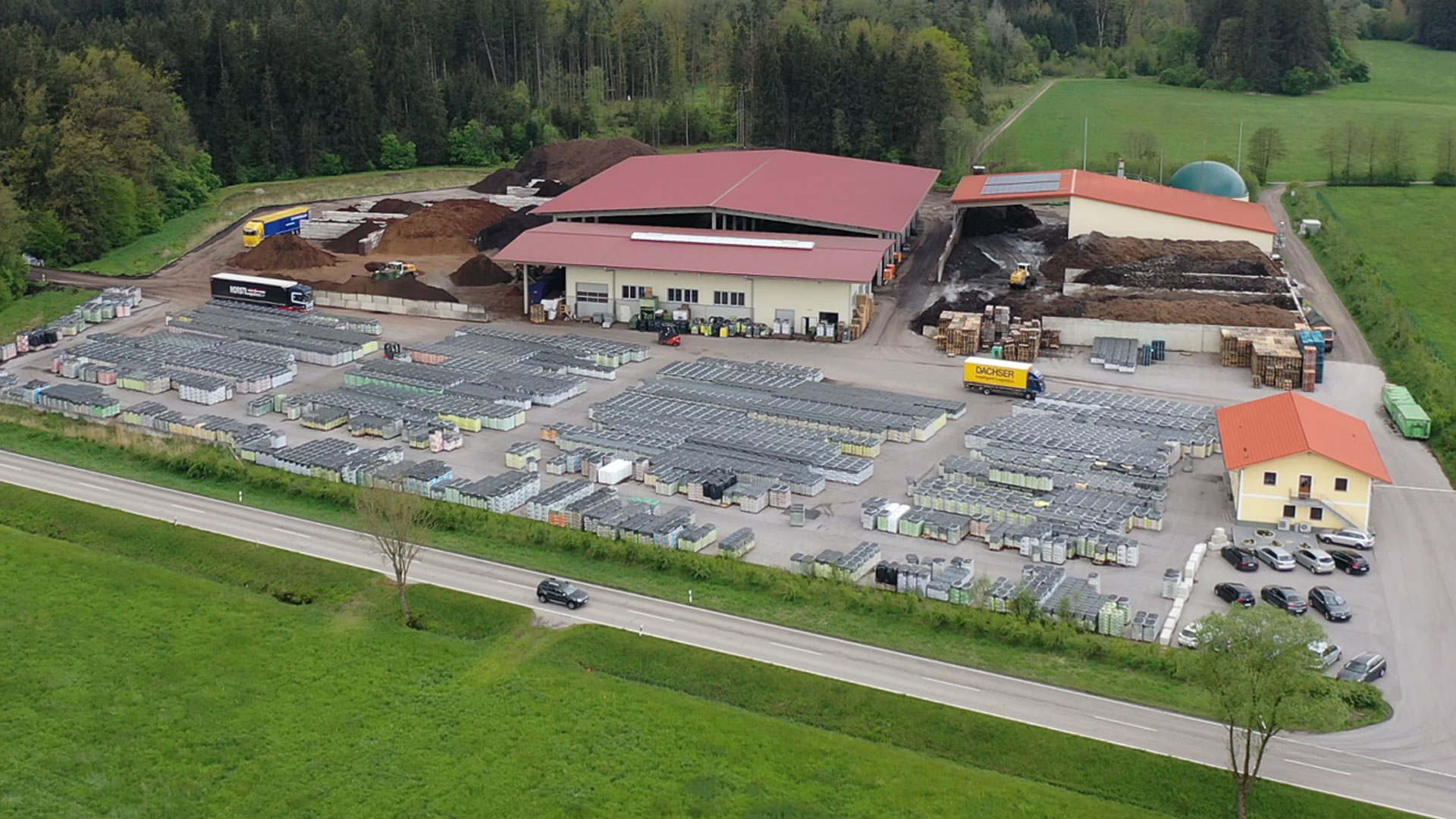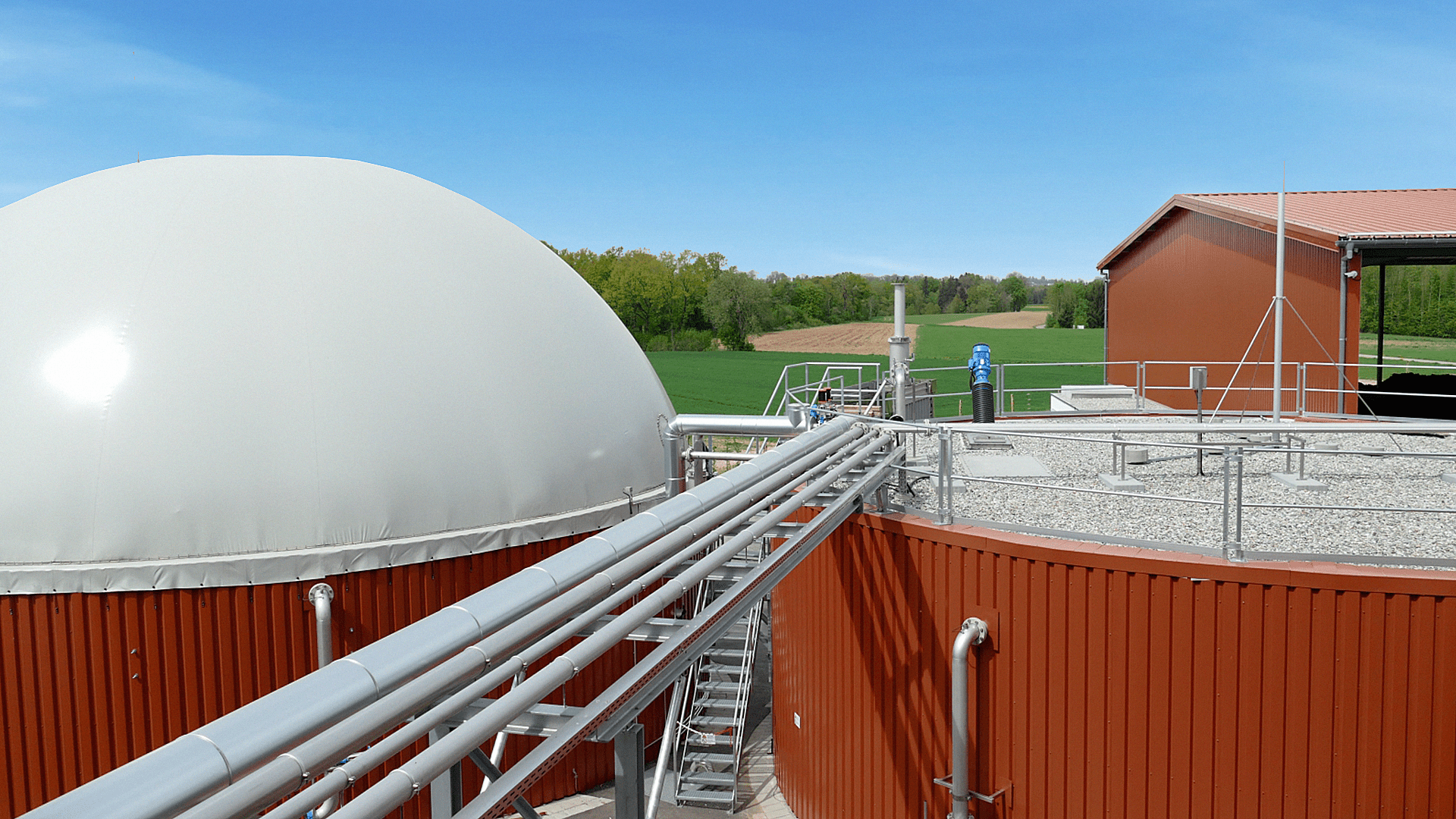
| Location: | Biberach, Germany |
|---|---|
| Biomass: | Green waste, horse manure |
| Quantity: | 17.500 t/a |
| Biogas: | 1.950.000 Nm3/a |
| Performance: | 445 kW el. Ø |
BIOGAS PLANT & COMPOSTING SITE
Biberach, Germany
Around 4.8 million tons of green waste are produced in Germany every year, of which only around 5% is currently used to generate energy. The biogas plant in Biberach, operated by Andreas Zell, shows how this organic waste can be used to generate sustainable energy.
The biogas plant in Biberach is a prime example of how organic waste can be put to good use and converted into renewable energy. It shows that the energy recovery of green waste is not only ecologically beneficial, but also an important step towards achieving climate targets.
From green waste to energy and compost
The plant converts garden and park waste, landscape management grass, horse manure and grain waste into valuable energy. The biomass is sprayed with the percolate in the digesters. This process leads to the production of biogas.
Electricity and heat from biogas
The biogas produced consists mainly of methane and carbon dioxide and is burned in combined heat and power plants to generate electricity and heat. This energy is fed into the relevant local grids and can thus supply numerous households.
After the fermentation process, the biomass is sanitized, i.e. free of germs and sprouting seeds. It is then dewatered, aerated and processed into high-quality compost, which is used in organic horticulture and agriculture.
